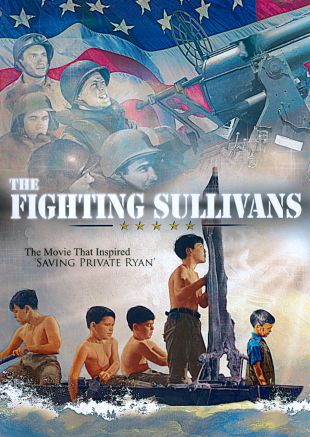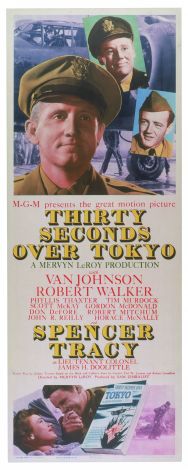It was rare in 1940s Hollywood for actors to portray their real-life exploits, but Selena Royle was also a rare talent, who first became known to most moviegoers portraying herself, and her real-life work on behalf of America's war effort. Though nearly forgotten today, apart from her work in a handful of films, Selena Royle was one of the most respected actresses on the Broadway stage from the 1920s onward, and in Hollywood during the 1940s. The daughter of celebrated playwright Edwin Milton Royle (best remembered as the author of the play The Squaw Man, which was a hit on three separate occasions -- 1914, 1918, 1931 -- for Cecil B. DeMille and helped Samuel Goldwyn get a foothold in the movie business), Selena Royle embarked on a theatrical career over her parents' objections, earning her first professional acting credit playing Guinevere in a play that her father had written, Launcelot and Elaine. Her next few roles were, to her embarrassment, all in works written or produced by friends of her family, but she finally proved her own talent by winning a part (before her name was known to the producers) in the Theater Guild's production of Peer Gynt in 1923, opposite Joseph Schildkraut. Royle distinguished herself in long-running plays such as When Ladies Meet and Days Without End. She tried life in Hollywood in the early '30s, in The Misleading Lady (1932), but she quickly returned to New York where she spent ten more years on-stage, easing into maternal roles with grace and dignity, and also establishing herself on radio as a star of long-running series such as "Hilda Hope, M.D." and "Kate Hopkins." Royle also endeared herself to a generation of her colleagues by organizing the Actor's Dinner Club at the Hotel Woodstock in New York City, as a means of feeding members of her profession who were left out of work during the Great Depression.
This experience served Royle in good stead 11 years later, after America's entry into WWII, when she organized the Stage Door Canteen, a Broadway institution that entertained and served millions of free meals to many hundreds of thousands of servicemen who passed through New York on their way to or from the world's battle-fronts. The canteen also brought Royle back into movies, playing herself in Frank Borzage's feature film Stage Door Canteen (1943). She spent the next 11 years in Hollywood, principally in maternal roles, most notably as the mother of the five young, doomed sailors in The Sullivans and Elizabeth Taylor's mother in Courage of Lassie, and in such famous movies of the period as Night and Day (the alleged Cole Porter biographical film) and The Harvey Girls. She remained busy throughout the 1940s and into the early '50s in every kind of movie, from big-budgeted epics such as Victor Fleming's Joan of Arc, small-scale psychological dramas such as Frank Borzage's Moonrise, William Wyler's high-profile literary adaptation The Heiress, and crime dramas such as He Ran All the Way.
In 1951, however, her career came to a halt when Royle was denounced in the publication Red Channels as an alleged Communist sympathizer, and subsequently refused to appear before Senator Joseph R. McCarthy's investigative committee. She was suddenly "wrong" for every role that she tested for and her screen career was effectively ended -- she sued Red Channels and the American Legion (who had published the Red Channels list of supposed subversives) and mounted a publicity campaign that ended with the Red baiters backing off. Royle had beaten the blacklist, but she only made two more movies, Phil Tucker's ultra-low-budget Robot Monster, and Edgar G. Ulmer's independently made Murder Is My Beat, neither of which was produced on a scale resembling the films of her earlier days. In 1954, seeing that she was no longer wanted or needed in Hollywood, Royle and her second husband, George Renavent, decided to leave the United States. They moved to Guadalajara, Mexico, where they lived happily until his death in 1968. During her final 20 years, Royle was a successful author of books about cooking and about Mexico.


